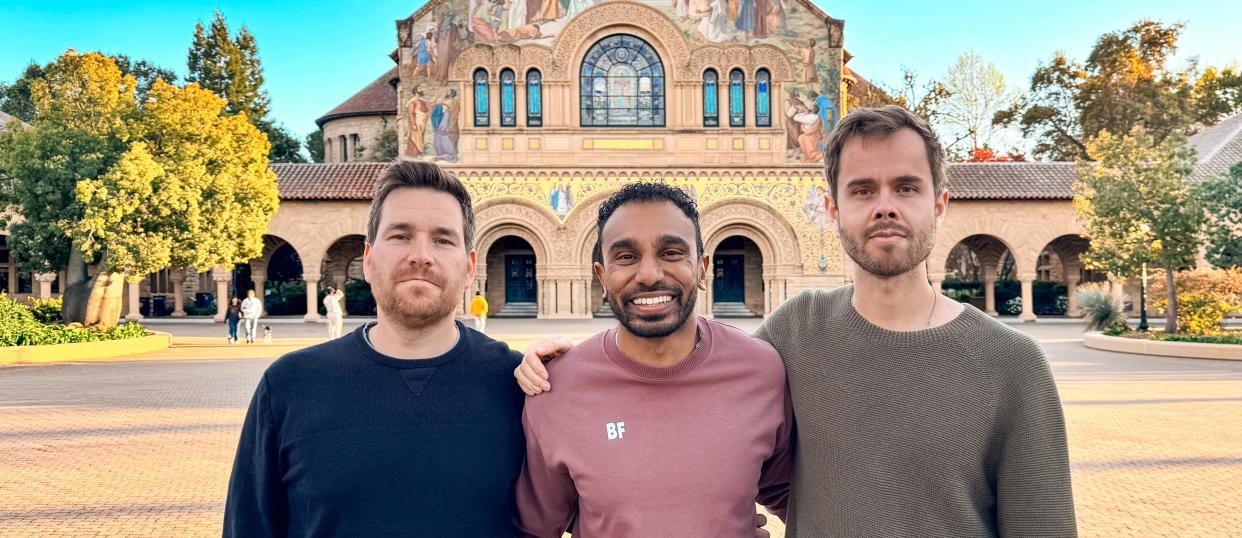Nala to use $40M Series A to build B2B payments platform, scale remittance services

Nala, a remittance startup that is now widening its portfolio through a new B2B payments platform, has raised $40 million equity in a rare deal that becomes one of the largest Series A transactions in Africa.
The oversubscribed round was led by San Francisco-based VC firm Acrew Capital, with participation from DST Global Partners, Norrsken22, HOF Capital, and existing investors including Amplo and NYCA Partners. A number of angel investors, including fintech founders Ryan King of Chime and Vlad Tenev of Robinhood made investments too.
Nala founder and CEO Benjamin Fernandes told TechCrunch the new capital injection, which follows a $10 million seed in 2022, will fuel the company’s global growth plans that involve scaling its remittance business to serve the Asian and Latin America markets.
Currently, Nala, through its consumer app, enables people domiciled in the E.U., U.K. and U.S. to send money across 249 banks and 26 mobile money services in 11 markets across Africa. Where Nala has integrated with mobile money services like Kenya’s M-Pesa, remitters can pay bills directly into local mobile wallets.
Fernandes says the decision to add payment capabilities was informed by user requests of a 360-degree control of their money. The fintech plans to scale these offerings to the planned new markets, starting with Asia.
Nala is also doubling down on its B2B payments platform launched in March to serve global businesses making payments into and out of Africa.
"This $40 million funding round marks a pivotal moment for Nala. It will enable us to go beyond remittances and extend our reach beyond Africa, building a robust payments ecosystem. We're reinvesting this money to enhance our infrastructure, ensuring reliable, low-cost payments for all. With the launch of our own payment rails and the expansion of our B2B platform Rafiki, we're not just talking about change, we're building it. We’ve got some bold, ambitious plans, give us a couple of years," said Fernandes.
Fernandes launched Nala in 2017 initially to offer local money transfers in Tanzania but pivoted to enable foreign remittances in 2021.
https://techcrunch.com/2024/03/19/nala-builds-a-b2b-payment-platform-too
The startup's new B2B platform, Rafiki, also powers Nala’s consumer app. Fernandes told TechCrunch in a past interview that they decided to build the payments platform to guarantee the reliability of its remittance services and to serve global businesses looking for dependable services.
Through Rafiki, which directly integrates with banks and mobile money providers, Nala says it is able to guarantee service availability for its consumer service. Besides, its own payment infrastructure implies lesser charges for the users of its consumer app, making it more competitive.
Guaranteeing service delivery, Fernandes said, has been the fuel behind the growth of the startup’s consumer business, which accounts for over 90% of its revenues currently. He said Nala is on the path to cross 500,000 customers and has already attained profitability.
The payments platform is also gaining clientele with early ones including U.K.-based fintech TransferGo which uses Rafiki for Africa payouts.
“For Rafiki, live customers on Nala range from global payroll providers such as Cadana to global remittance companies such as TransferGo and global banks doing cross border payments. The focus is enabling financial institutions and services to make cross border payments,” said Fernandes.
Opportunities in the remittance space
Nala’s plans for remittance services to other emerging markets such as Asia and Latin America comes after the World Bank predicted strong growth for the sector this year.
According to the World Bank’s Migration and Development Brief, remittance flows to sub-Saharan Africa are expected to grow by 1.5% after a slight drop in 2023 when they settled at $54 billion. Growth is also expected in regions like East Asia and the Pacific (excluding China), South Asia, Latin America and the Caribbean. This growth means demand for remittance services will persist.
"In India, migrants send over $125 billion a year and the market is growing with more people leaving. This creates opportunities for those customers to be served but also global trade between regions that will only increase. The Asian and African regions have been trading more and money needs to move reliably to make this happen," said Fernandes.
As demand for remittance support grows, the World Bank notes that sending money across borders remains costly. The global average cost of sending $200, for instance, was 6.4% of the amount sent. However, digital remittances cost was lower, at 5%, compared to non-digital at 7%, making a case for services provided by Nala and its peers, which include Flutterwave. Nala says bringing down the cost of sending money is at the heart of their offering.
Acrew founding partner Lauren Kolodny said, “We believe Nala will be the leader in remittances for the next generation of Africans who are expected to account for 35% of all the world's youth by 2050,” adding that the team “has deep local knowledge, fintech expertise, and unique community building know-how to build the cross-border payment rails for the next billion.”

 Yahoo Movies
Yahoo Movies 
